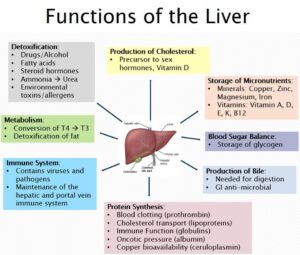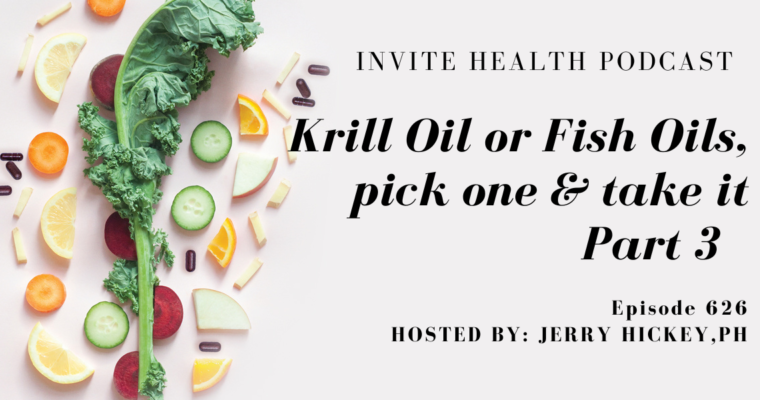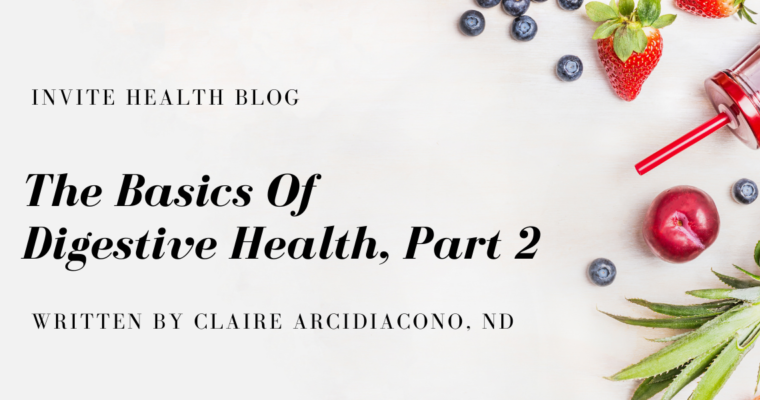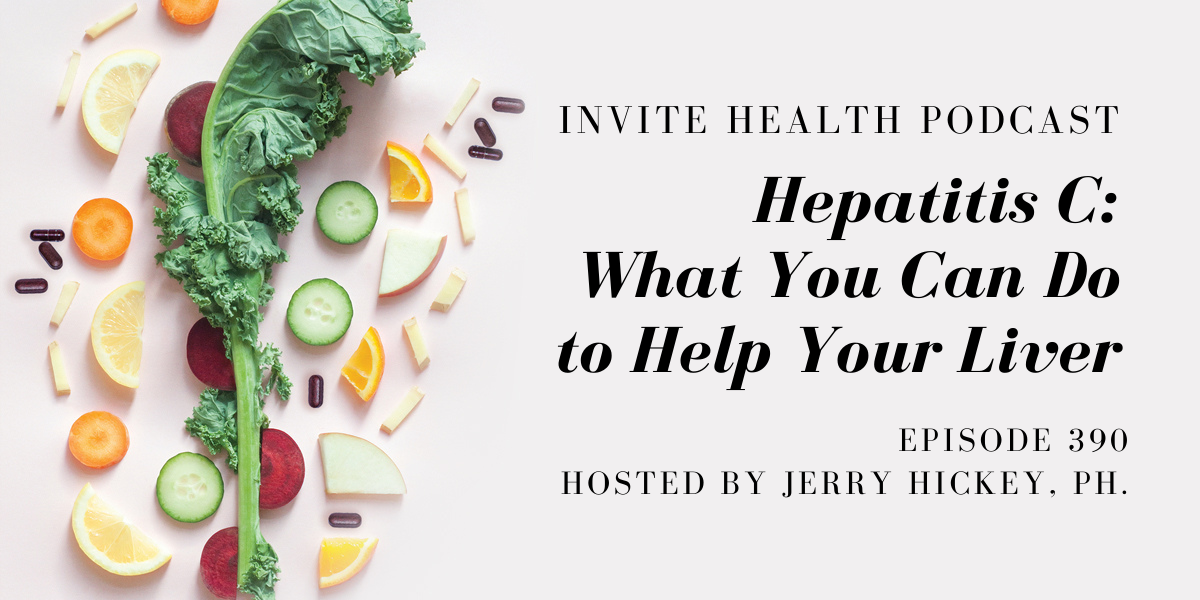hepatitis c
InViteⓇ Health Podcast, Episode hosted by Jerry Hickey, Ph.
Subscribe Today!
Hepatitis C is a virus that attacks and damages your liver. Many people living with Hepatitis C infections experience no symptoms or very mild symptoms, but this changes when they develop serious liver damage. That’s why it’s called the “silent killer”. According to the Center for Disease Control (CDC), approximately 3,200,000 Americans are infected with chronic Hepatitis C. Up to 75% of these people do not know they are walking around with it. Because they’re not being diagnosed and the virus is not being discovered until there’s liver damage, it can become a very serious situation.†
IMPORTANT NUTRITION FOR A HEALTHY LIVER – INVITE HEALTH PODCAST, EPISODE 57. Listen Now>>
Living with chronic Hepatitis C
For reasons that are not known, less than half of people who get Hepatitis C are not able to clear it out of their systems. Without treatment in the first six months after infection, the virus can become chronic, lifelong, very hard to rid yourself of and quite dangerous. Most people who get infected will develop a long-term infection. Left untreated, chronic Hepatitis C can cause serious health problems, including liver disease, liver failure (cirrhosis), liver cancer and even death. Because of this, according to the CDC, all adults, pregnant women and people with risk factors for developing this issue should get tested for Hepatitis C.†
Hepatitis C is usually spread when someone comes into contact with the blood or the fluids from an infected person. This can happen by sharing drug injection equipment, razors or glucose monitors with someone who is infected. About 6% of infants born to infected women develop Hepatitis C early on, but this can be treated. Healthcare workers are also at risk. It’s not very common, but if a healthcare worker jabs themselves with a needle, it can happen. If you have sex with someone who’s infected with Hepatitis C, it could also spread that way.†

Many people with Hepatitis C don’t have a lot of symptoms. If the symptoms do occur, it would be something that would make it obvious that there’s an issue with the liver. This could include yellow eyes, yellow skin, dark urine or clay-colored poop. You can also have a lot of intestinal problems. You may not feel hungry. Fluid can build up in your abdomen. You can have stomach pain and you can throw up. You can also develop a fever, have joint pain and feel tired. If you have these symptoms, you need to contact your doctor right away before this becomes a chronic disease.†
How to support your liver health
What can you do to help with your liver? The mineral zinc can help. We know that the immune system needs zinc to create immune cells, but zinc also prevents the immune system from harming you. It helps protect organs and tissues throughout the body. It’s well-known that zinc levels drop dramatically after you fight a virus. Studies have shown that when you have a Hepatitis C infection, zinc-related metallothioneins are needed to fight the virus and protect your organs.†
IMMUNE BENEFITS OF VITAMIN C, ZINC & VITAMIN D – INVITE HEALTH PODCAST, EPISODE 118. Listen Now>>
Vitamin D is also needed. It’s needed for our immune system. Vitamin D is stored in the liver and activated in the kidneys. Vitamin D helps you to regulate your immune system to fight viruses better, but also to prevent the immune system from destroying you. Antioxidants do not work well if you lack Vitamin D because you become inflamed and the antioxidants are used up inappropriately.†
In this episode, Jerry Hickey, Ph. explains the Hepatitis C virus. He describes how this chronic infection can impact the body and offers recommendations for nutrients that can help support liver health.†
Key Topics:
- Details about Hepatitis C from the CDC
- Common symptoms of this virus
- What are metallothioneins?
Thank you for tuning in to the InViteⓇ Health Podcast. You can find all of our episodes for free wherever you listen to podcasts or by visiting www.invitehealth.com/podcast. Make sure you subscribe and leave us a review! Follow us on Facebook, Twitter and Instagram at InViteⓇ Health today. We’ll see you next time on another episode of the InViteⓇ Health Podcast.












